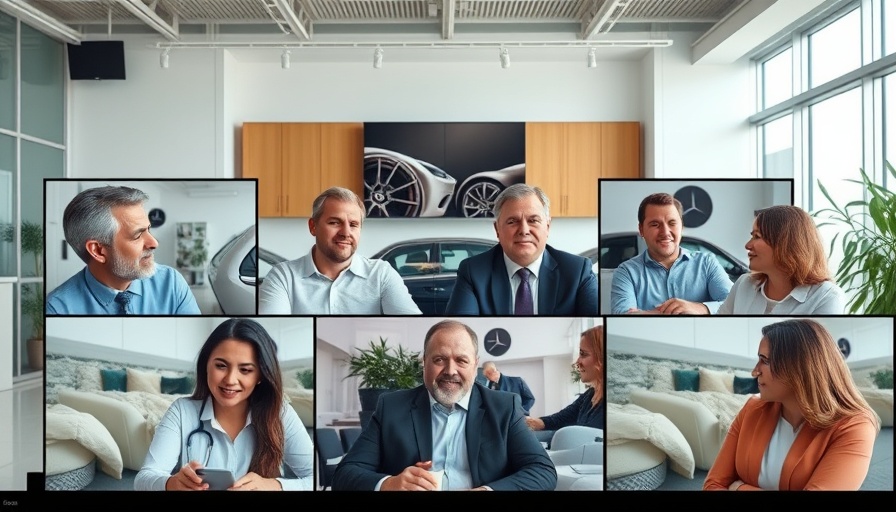
The Transformation of HR in the Auto Industry
Once seen as a hindrance in the auto industry, the role of Human Resources (HR) is now evolving rapidly. In the wake of significant changes within dealerships, it's time to address the traditional silos that have long defined the dealership culture. Mandy Dvau from Drive HR highlights this transformation, emphasizing the need for a system that is not only efficient but also centered around people. This innovative approach is a refreshing pivot from the outdated mechanisms of HR that often prioritize procedures over individuals.
In DBC Episode #12 Mandy, the discussion dives into the reimagined role of Human Resources in the auto industry, exploring insights that sparked deeper analysis on our end.
Breaking Down Barriers: The Need for Connection
Mandy pointed out the very real issue of inter-departmental silos in dealerships, where sales and service often operate in isolation from one another. This lack of communication often leads to conflict and a disjointed experience for customers and employees alike. By promoting a people-first approach, Drive HR is fostering a culture of collaboration and understanding. This becomes even more crucial when considering that employee retention remains a significant challenge in the auto industry. Feeling heard and valued is key to keeping talent engaged and on board.
Integrating Technology for Enhanced HR Processes
The discussion also touched on the innovation of Drive HR's software, which consolidates various HR functions into a single, user-friendly platform. This not only simplifies processes for HR professionals but also enhances the overall employee experience by allowing for seamless tracking from hiring to retirement. For instance, their engagement module enables employees to share experiences and participate in feedback, creating a more inclusive workplace culture.
The Future of Automotive HR: A Blend of Tradition and Innovation
As the automotive industry continues to adapt, it will be vital to embrace both traditional practices and modern technologies. This hybrid approach could mean the difference between stagnation and progress for many dealerships. By prioritizing employee engagement and embracing an adaptive workforce, businesses can position themselves favorably even in an evolving market. The insights Mandy shared about Drive HR emphasize that a happy team translates into satisfied customers—something that should be at the forefront of every dealership’s strategy.
The Necessity for Forward-Thinking Strategies
The challenges of the past should not dictate the future. With Drive HR as a model, other businesses can learn how to overcome obstacles by ensuring that the human element is not overlooked in HR practices. The industry’s future hinges on combining compliance with a robust support framework for employees, ultimately leading to a healthier work environment and stronger customer relationships.
If you’re involved in the automotive industry or seeking to stay up to date on HR advancements, consider exploring the offerings from Drive HR. Their commitment to a more human-centric approach to HR is not just innovative; it's essential in today’s fast-paced market. Keep an eye on upcoming webinars and training opportunities to enhance your dealership’s HR practices.
 Add Row
Add Row  Add
Add 




Write A Comment